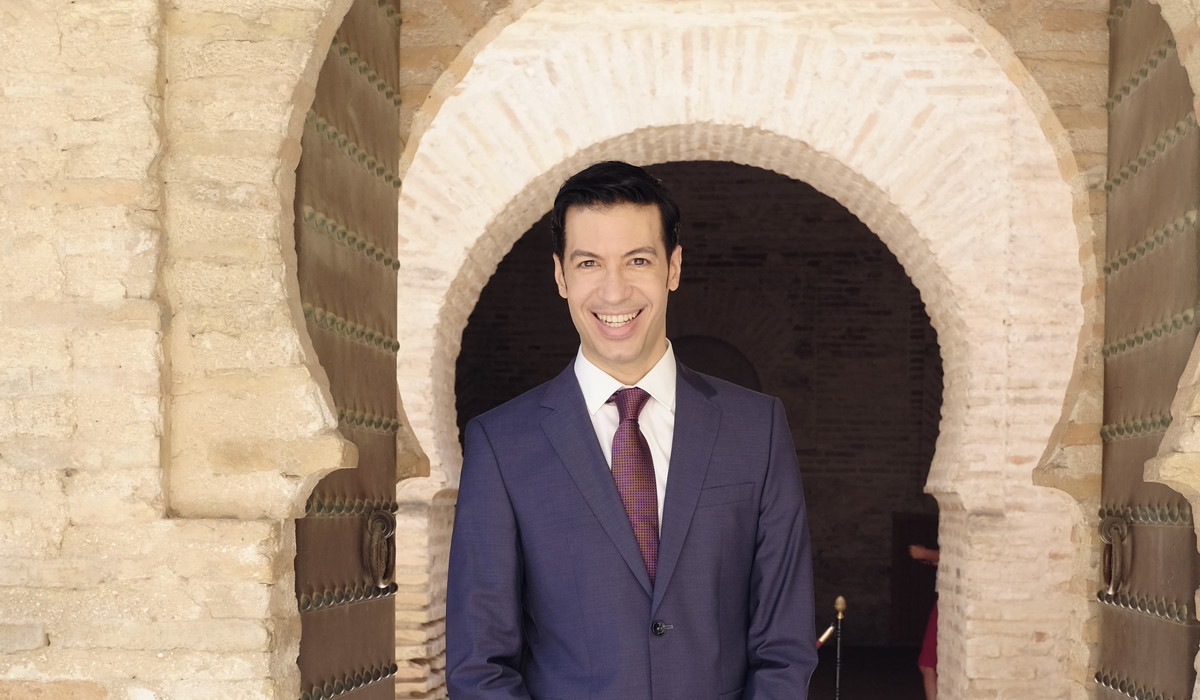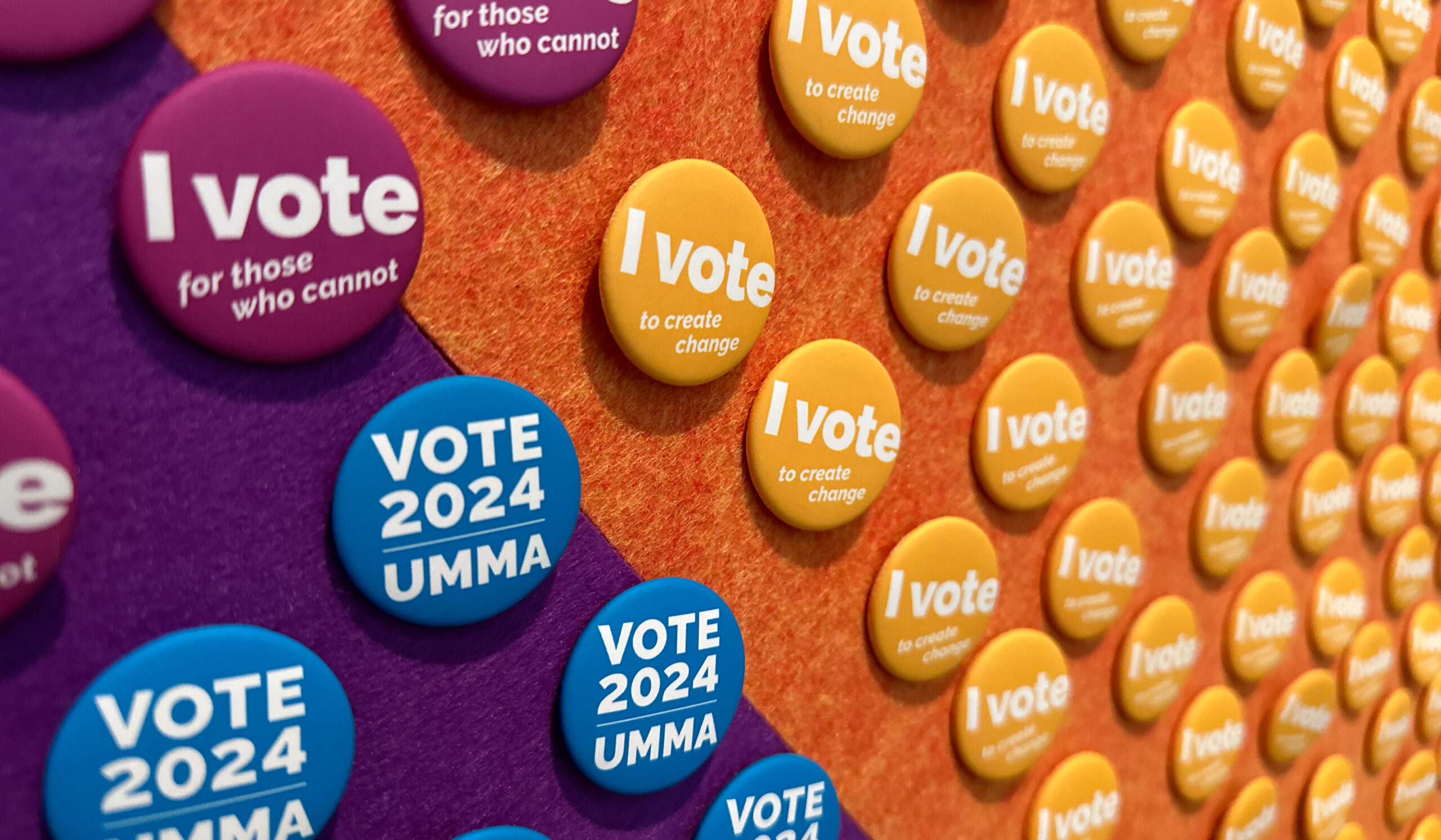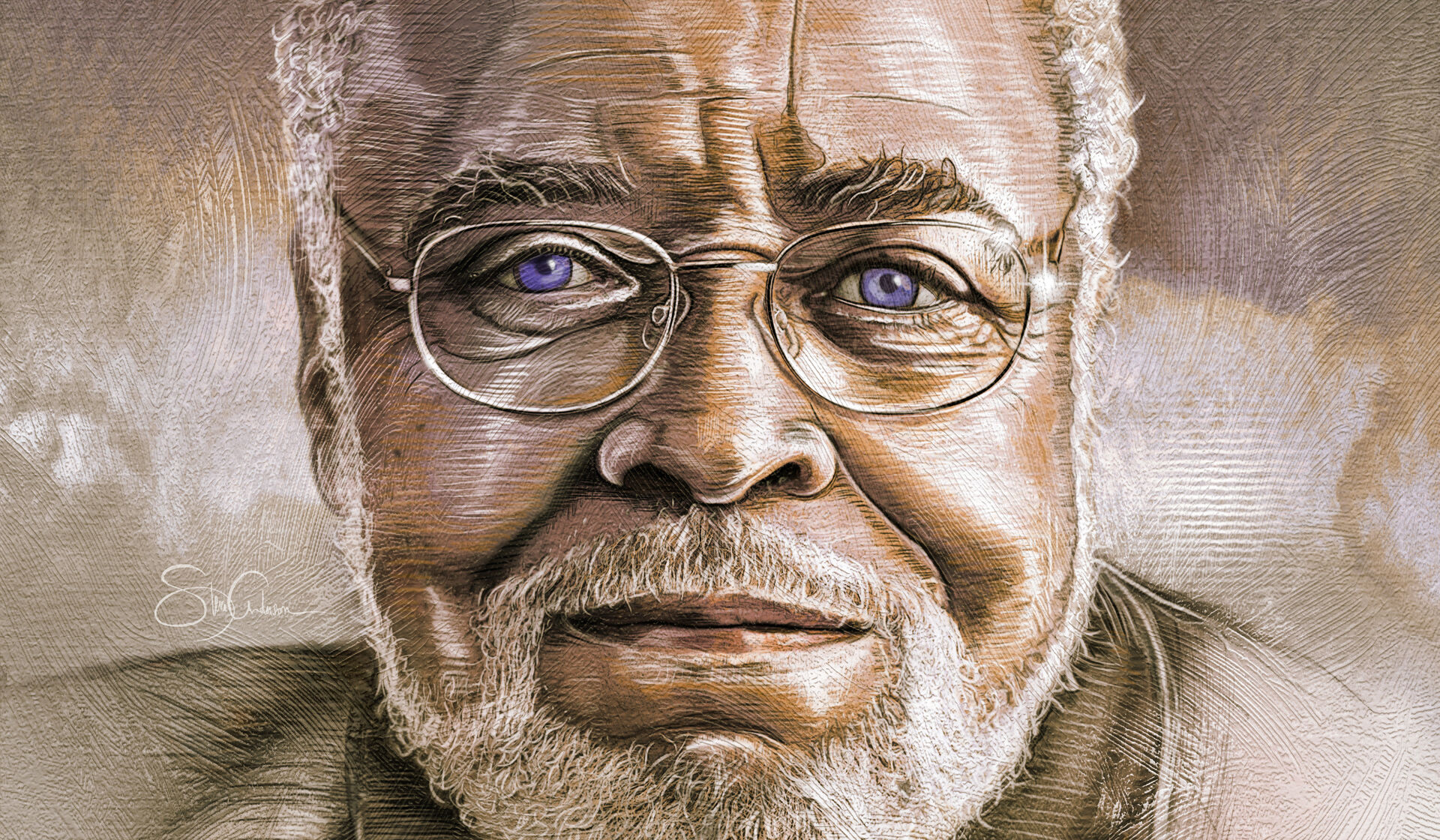The first-ever U-M professor to be notified of his Golden Apple Award during a Zoom call, Lorenzo García-Amaya delivered his “last lecture” on Oct. 16. Like all such lectures, his “Words You Didn’t Know: Collaborating to Discover the Secrets of Second Languages” is framed as the lecture he would give if it were his final. He also took time that week to discuss his research with Michigan Alumnus.
Your bio on the LSA website states that you work at the intersection of second-language acquisition and psycholinguistics. What does that mean in layman’s terms?
Psycholinguistics studies the ways in which language is represented and processed in the brain. Specifically, it explores how the mind processes and categorizes everything from vocabulary to grammar. In my research, I am interested in what happens when a first language is introduced to a second language’s new features.
Were you a second-language learner yourself? If so, how does that inform your work?
Yes, I was raised in Spain, spoke Spanish as my first language, and then started learning English as an adult. I would say that the challenge of learning English during my college years definitely sparked an interest in how oral fluency develops.
For example, I noticed how my professors who had also learned English as adults displayed very different English proficiency levels. While, for some of them, it was impossible to tell that they weren’t native English speakers, for others, a lack of fluency was accompanied at times by a pretty noticeable foreign accent. Investigating how individual differences play out in second language learning is at the core of most of the research we do in the Speech Production Lab.
Tell more about the lab, which you co-founded with Professor Nicholas Henriksen.
The SPL is a research environment dedicated to researching different aspects of linguistics through collaboration. We are especially interested in creating a learning community for undergraduate students who wish to partake in research opportunities that are not typically offered to them in the natural sciences or other research labs on campus.
We have run studies focused on sociolinguistics, bilingualism, pausing in a second language, second language pedagogy, study abroad, and more. While most of our publications appear in “strictly speaking” academic journals, we also encourage our students to consider publishing their own work through public scholarship. For example, they have published in magazines such as Inside Higher Ed and Times Higher Ed.
Describe your research in language-immersion contexts, such as study-abroad programs.
My research has indicated that students who inhibit their first language(s) as much as possible while abroad (in other words, those who avoid the use of English) show significant improvements in their oral proficiency. The more engagement and interaction in the second language, the better!
I am currently involved in a research project where we track students’ language use abroad while they are overseas. One consistent pattern I find is that, although students are initially very committed to learning a foreign language, they tend to socialize and travel with their program peers when they’re overseas. Thus, they end up speaking the foreign language much less than anticipated. I think that it is vital that researchers, administrators, instructors, and students get together to discuss these trends and find ways to reverse them.
You are part of a U-M project titled “From Africa to Patagonia: Voices of Displacement.” How is that project relevant to your research?
First and foremost, the project is a research collaboration focused on bilingual speakers who learned Afrikaans as their first language and then began speaking Spanish as a second language during late childhood and early adolescence.
This project represents a fascinating intersection of language, history, and culture. Through our collective work, our team found that it was impossible to separate the Patagonian Boers’ Afrikaans language from their ancestors’ history as immigrants to a Spanish-speaking country, so we decided to study both!
Although we have more than 10 publications through our project, I have been the lead author on two articles focused on the bilinguals’ oral fluency patterns in their two languages.
What was your first reaction when you won the Golden Apple Award?
I could not believe it! I was so excited to hear the news, and it was great to see many colleagues and research assistants over Zoom. I was thrilled and humbled, and to be frank — speechless!





